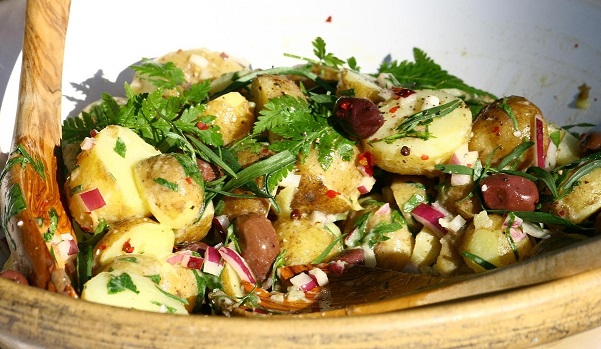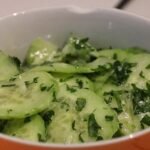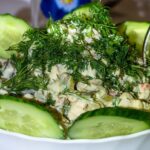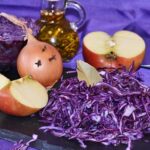
Few dishes represent German culinary tradition as fully as Kartoffelsalat – the beloved German Potato Salad served everywhere from Bavarian beer gardens to family Christmas dinners. It is hearty, tangy, and endlessly adaptable. Whether creamy with mayonnaise or sharp with vinegar and broth, Kartoffelsalat is a staple of everyday life and festive tables alike.
This article explores the origins, ingredients, and preparation of this beloved dish. We’ll also share regional variations and tips to make the best version at home.
The Origins of Kartoffelsalat Recipe
Kartoffelsalat has been a fixture in German cuisine since the introduction of the potato in the 18th century. Originally considered peasant food, potatoes quickly gained popularity for their affordability and versatility. In southern Germany, particularly Bavaria and Swabia, Kartoffelsalat took on a vinegar-based form made with beef broth, mustard, and onions. Meanwhile, in northern Germany, mayonnaise and pickles became the base of choice.
Today, each family claims their version as the best. In fact, regional loyalties are so strong that the question “with mayo or without?” can spark lively debates at gatherings. Kartoffelsalat is often served with schnitzel, grilled sausages, or even on Christmas Eve with boiled sausages – a tradition in many German households.
For more insights into regional dishes, visit our page German Salad Recipes and learn how history has shaped the country’s cuisine.
Ingredients for Authentic Kartoffelsalat Recipe
Southern German (Swabian-style) Kartoffelsalat:
- 1 kg waxy potatoes (e.g., Yukon Gold)
- 250 ml beef or vegetable broth
- 1 small onion, finely chopped
- 3 tablespoons white wine vinegar
- 2 tablespoons sunflower oil
- 1 teaspoon yellow mustard
- Salt and pepper to taste
- Optional: chives or parsley for garnish
Northern German (creamy-style) Kartoffelsalat:
- 1 kg waxy potatoes
- 3 tablespoons mayonnaise
- 1 tablespoon sour cream
- 1 tablespoon mustard
- 2 pickles, finely diced
- 1 small onion, chopped
- Salt and pepper
- Optional: pickle juice for added tang
Tools You’ll Need:
- Large pot
- Potato peeler
- Mixing bowls
- Spoon or spatula
How to Make Kartoffelsalat (Step-by-Step Instructions)
Step 1: Boil and Cool the Potatoes
Place unpeeled potatoes in a large pot of salted water. Boil for 20 to 25 minutes or until fork-tender. Drain and allow to cool until they can be handled. Peel while warm for better flavor absorption.
Step 2: Prepare the Dressing
For Swabian-style, heat the broth and pour it over the chopped onions, vinegar, oil, mustard, salt, and pepper. Let it steep while you slice the potatoes.
For creamy-style, mix mayonnaise, sour cream, mustard, chopped pickles, and a bit of pickle juice in a bowl.
Step 3: Slice the Potatoes
Cut the peeled potatoes into thin slices. Layer them in a large mixing bowl.
Step 4: Combine and Rest
Gently fold the dressing into the potatoes. For the Swabian version, do this while the potatoes are still warm. Let the salad sit for at least 30 minutes to absorb the flavors. For the creamy version, chill for one hour before serving.
Step 5: Garnish and Serve
Top with chopped chives, parsley, or extra pickles. Serve as a side dish or on its own.
How to Serve Kartoffelsalat
Kartoffelsalat is commonly served with schnitzel, bratwurst, or Leberkäse. At barbecues, it pairs beautifully with grilled meats and bread rolls. During winter holidays, it’s often served with boiled sausages and mustard.
Try it alongside other traditional dishes like Schnitzel or Rotkohl (Braised Red Cabbage) for a complete German meal.
For beverage pairings, a crisp German pilsner or Riesling complements the tanginess of the salad.
Variations and Regional Twists
Swabia: Known for its vinegar-and-broth version, served warm and without dairy. The broth helps soften the potatoes and adds depth.
Bavaria: Similar to Swabian, but may include bacon or sautéed onions for added richness.
Berlin/North Germany: Cream-based with mayonnaise, pickles, and sometimes apples. Chill thoroughly before serving.
Modern Twist: Some contemporary recipes add Dijon mustard, yogurt for a lighter cream base, or fresh radishes for crunch.
Kartoffelsalat is more than a side dish – it is a symbol of German heritage, hospitality, and home cooking. Whether you prefer the tangy southern version or the creamy northern one, this simple salad offers comfort and flavor with every bite.
Give it a try and see which style becomes your favorite. And if you love it, why not explore more traditional dishes like Gurkensalat (Cucumber Salad) or Fleischsalat (Meat Salad)?
Your German cooking adventure starts here – and Kartoffelsalat is the perfect first step.







